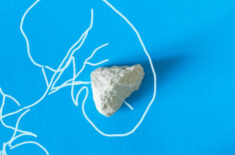Overview
Breakouts and pimples often leave scars that may be treatable.
The first order of business is to get your acne-prone skin back into balance in order to prevent future scars from forming.
This is where dermatology and aromatherapy can join forces to offer you Mother Nature’s most potent skin healing potential.
Using essential oils for skin care isn’t anything novel or new; many skin products already contain high levels of botanical extracts and essential oils.
Here’s how adding them to your daily skincare routine can help you minimize the appearance of acne scars…
Essential Oils & Their Healing Properties
Essential oils (EOs) are highly concentrated plant extracts containing hundreds of active compounds known to help support the body’s many healing processes.
EOs offer many skin health benefits thanks to their:
- Anti-inflammatory properties – Reduce inflammation associated with acne
- Antimicrobial properties – To help keep skin clean and pure
- Antibacterial properties – To help prevent infections
- Antifungal properties – To help reduce fungal infections
- Antioxidant properties – To help keep skin glowing and healthy
By using EOs for acne, you can bypass potential harsh chemicals and instead opt for a natural way to help accelerate healing and reduce scarring.
EOs can help to balance out your skin tone, reduce the appearance of dark spots, increase anti-aging protection, and even accelerate hair growth on your head.
EOs can also help skin conditions like:
- Rosacea
- Eczema
- Psoriasis
- Shingles
- Warts
- Healing bug bites
- Helping sunburns and skin burns
The Best Essential Oils For Acne Scars & Blemishes
Tea tree oil
- Antibacterial properties
- Anti-inflammatory properties
- Anti-fungal properties
- Antiseptic
- Antimicrobial properties
- Wound-healing & scar-reducing properties
Tea tree essential oil is a strong antiseptic that can help prevent infections while accelerating wound healing.
It can be an effective spot-treatment though it can also dry the skin so it’s important to follow its application up with a moisturizer that hydrates the skin.
You can also look for a high-quality face wash and cleanser containing tea tree oil.
Topical use may cause skin irritation in sensitive skin types.
Frankincense oil
- Antibacterial properties
- Anti-inflammatory properties
- Antiseptic
- Antimicrobial properties
- Wound-healing & scar-reducing properties
Frankincense essential oil is a known potent inflammation fighter that also improves the skin’s healing process. (1)
It can help to prevent and neutralize scars.
As an added bonus, Frankincense oil also appears to help aging skin, as it can accelerate new skin cell production while reducing the appearance of dark spots and wrinkles.
Lavender oil
- Antibacterial properties
- Anti-inflammatory properties
- Anti-fungal properties
- Antiseptic
- Antimicrobial properties
- Wound-healing & scar-reducing properties
Lavender essential oil is gentle for most skin types while also being a potent acne treatment addition.
Its main active components linalool and linalyl acetate are both known to reduce inflammation and help accelerate wound healing while reducing scarring. (2)
Other EOs known to help with scarring are:
- Helichrysum oil
- Geranium oil
- Chamomile oil
- Rosemary oil
- Sandalwood oil
- Neroli oil
- Carrot seed oil
How To Use Essential Oils For Acne Scar Healing
The first rule of using EOs on your skin is this:
Never apply them directly to the skin without first diluting them in a carrier oil!
This is especially important if you have any open pimples, sore, or wound on the skin.
You can dilute EOs with carrier oils that are known to help minimize breakouts, reduce scarring, moisturize dry skin, and offer antibacterial and antifungal effects:
- Rosehip oil
- Jojoba oil
- Coconut oil
- Almond oil
- Argan oil
Dilute 2-3 drops of EO per 1 teaspoon of your favorite carrier oil.
Daily topical application and light massage may even help reduce the appearance of stretch marks.
EOs like tea tree oil can be irritating for sensitive skin.
It’s best to perform a patch test on your forearm before using it on your face.
Wait 24-48 hours and if there is no reaction then proceed with caution.
Discontinue use if you experience any adverse reaction or discomfort.
Safety Concerns
EOs are highly concentrated and potent.
A little goes a long way and just a few drops of essential oil is all you need to reap the full healing benefits.
Always dilute them before applying directly to your skin.
Be mindful of phototoxic oils like lemon, grapefruit, and orange.
Use them with care and caution because you may experience an allergic reaction, adverse side effects, or irritation if you’re exposed to the sun after applying them.
Wear daily sunscreen when you spend any amount of time outdoors no matter the time of year.
If you experience an adverse reaction, discontinue use immediately.
To be on the safe side, perform a patch test on your arm before applying the oils to your face.
If you do not react after 24 hours, then proceed.
Check the contraindications for each oil you’ll use as some oils aren’t suitable for babies, young children, or pregnant women.
Always choose certified organic, 100%, therapeutic grade oils to avoid adulterated products or exposure to harmful chemicals.
Consult with your dermatologist before using any essential oils for serious acne conditions, especially if you’re on any medication.
A DIY Essential Oil Blend For Healing Scars
Acne RX Scar Solution
This acne treatment solution is for supporting the reduction of acne scarring.
Use it twice a day for best results as a spot treatment.
What you’ll need:
- 2 tablespoons of raw Manuka honey
- ½ tablespoon coconut oil
- 2 drops tea tree oil
- 2 drops frankincense oil
- 2 drops lavender oil
Cleanse your face and fully dry it.
Mix all ingredients together and generously apply the mixture to your face.
Allow it to settle for at least 30 minutes although the longer the better.
Wash off with warm water.
Discontinue use immediately if you experience an adverse reaction.
REFERENCES
:
(1) https://www.ncbi.nlm.nih.gov/pmc/articles/PMC5801908/
(2) https://www.ncbi.nlm.nih.gov/pmc/articles/PMC4360007/












